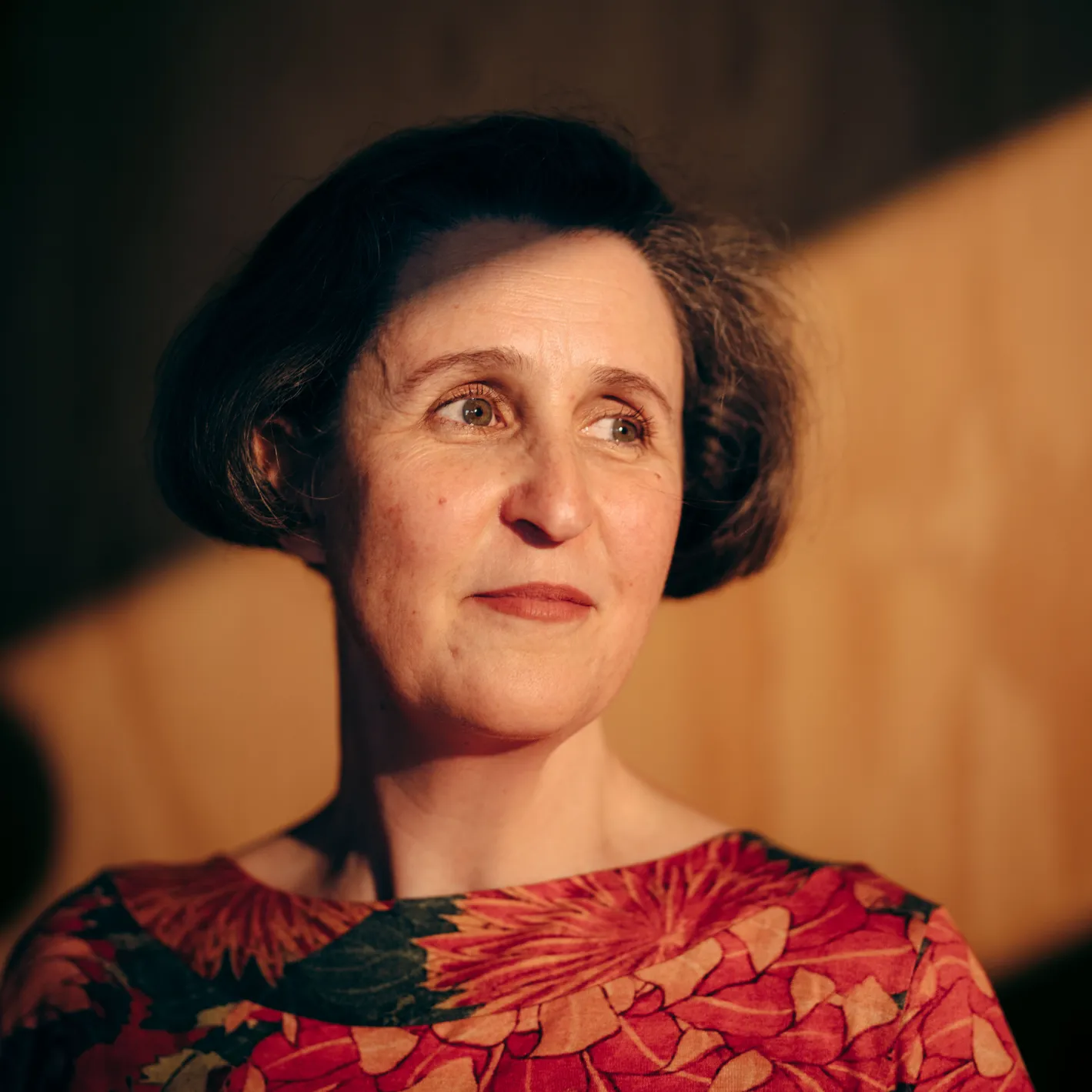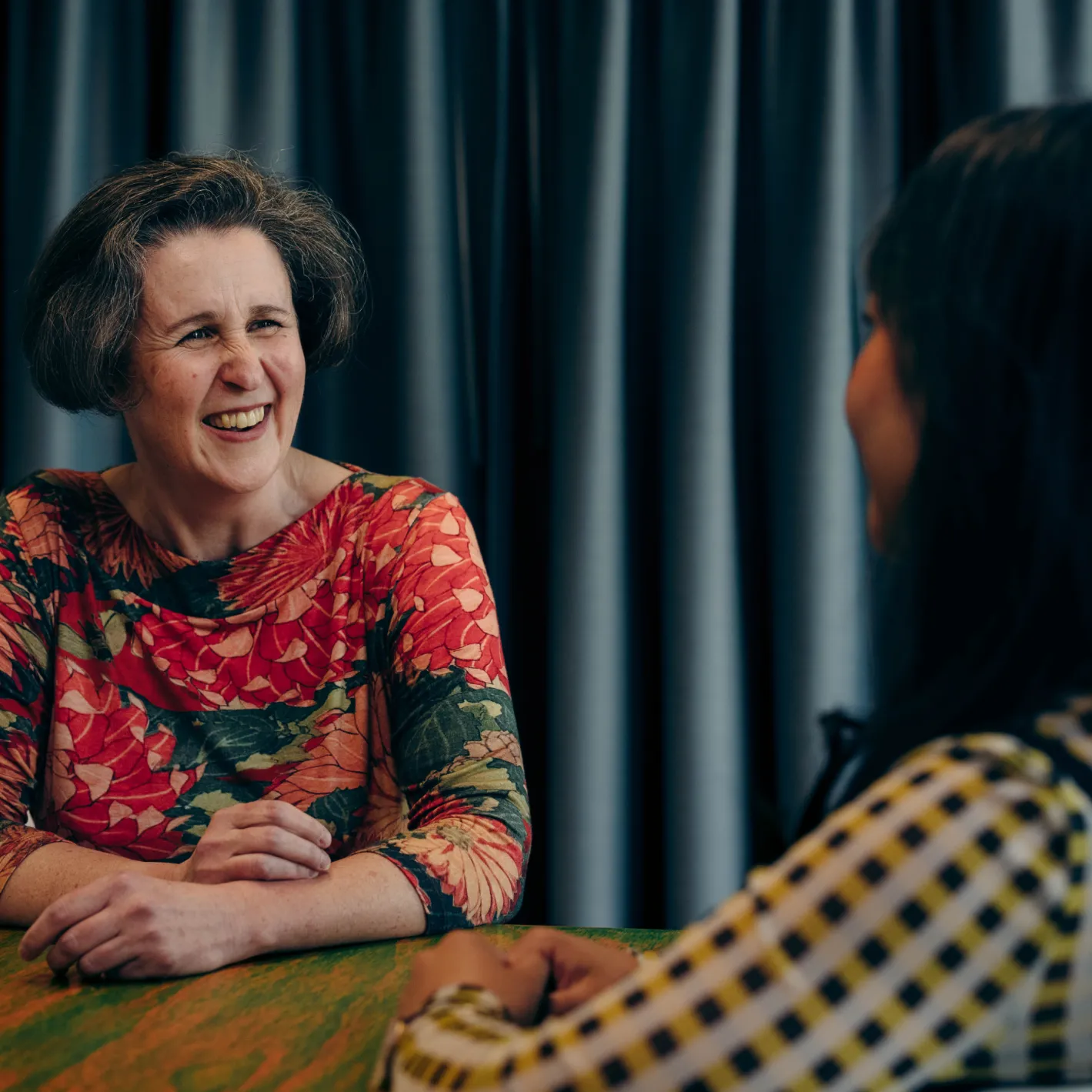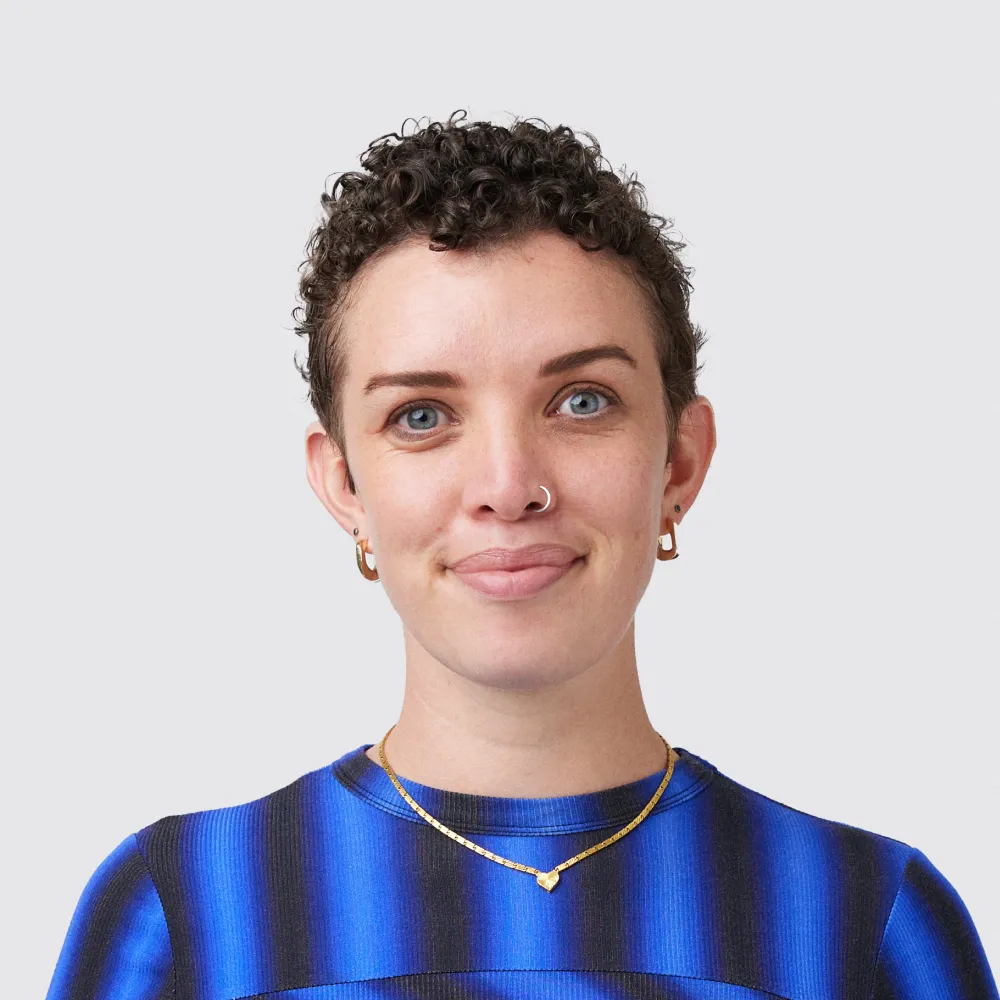Helen Dalley-Fisher is an independent feminist activist who started her career practising discrimination law, recently led the Equality Rights Alliance, and is now focusing on the future of the feminist movement itself.
We met up to discuss the importance of bringing together people with differing views to have challenging but productive conversations, rather than only engaging those who already agree.
“I think one of the key challenges for all of us is to push back on narratives and reflexive thinking practices, which lead us to see people who disagree with us as ‘other’. Instead, we need to ask ourselves, where's the opportunity to be challenged by this alternative point of view?”
Helen Dalley-Fisher, Independent feminist activist and former Convenor of the Equality Rights Alliance
Dewani Shebubakar, Head of Strategy, Design and Innovation at Today
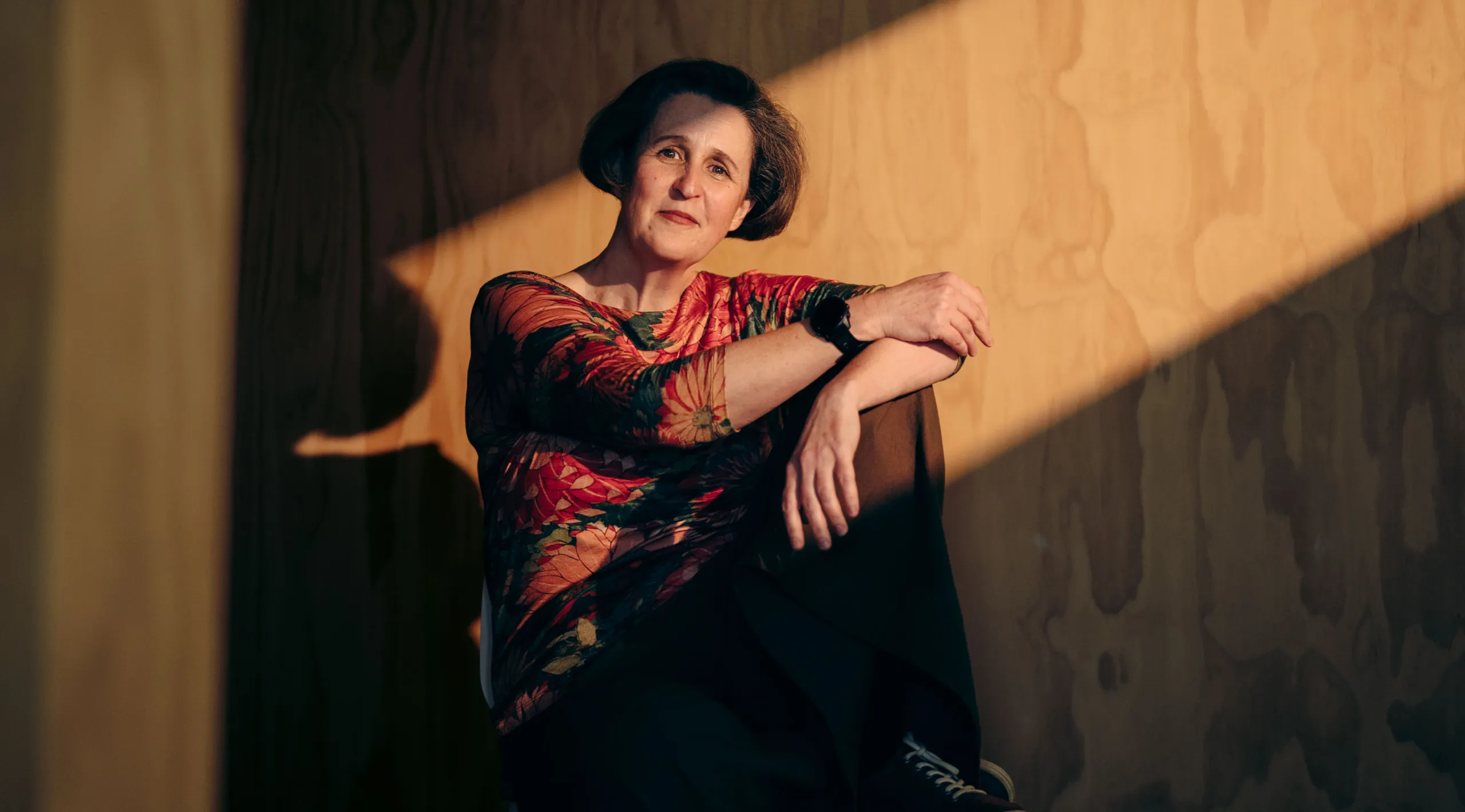
Helen, thank you so much for taking the time to join us today. For people who don't know of you and your work, please tell us a bit about yourself, what you do and what brought you to that work.
I am an independent feminist activist. I have a long history in a range of different areas that has led me to that work.
I started out as a baby lawyer in a corporate law firm. While studying my degree I became interested in the question of discrimination law and how you intentionally build a public discourse using laws. How do you build conversations about who has access to what by declaring certain areas of activity unlawful? I ended up practising in one of the big four law firms doing employment and discrimination law. One day I realised that in order to make that really work, I needed to step out—although there was some really interesting work being done there—so I took the leap and started volunteering in a community legal centre.
That initial volunteering experience taught me that I was in the right place. I was seeing people coming into the centre who had had no access to anybody who could help them to navigate the basic systems that we all live in, unable to navigate Centrelink or the tax system or employment processes because they hadn’t been educated about them or having near-insurmountable barriers to accessing those systems.
I practised disability discrimination law, tenancy law, and social security law for over a decade. And at the end of that, I found myself dealing with the same problem coming in attached to a different person each day, and thinking, there's a structural question to be asked here. So I took a role in an advocacy organisation called the Equality Rights Alliance (ERA), which was one of the six National Women's Alliances funded by the federal government to set up a feminist discourse at a federal level in federal policy.
Our job was to talk to the federal government about what the impact of policy would be on the lives of women and how you could leverage public policy to make substantial changes to some of those structural barriers that we see. Our focus areas were economic security and leadership.
We had a really fun time pulling together a broad group of organisations that were either women's organisations or organisations that were interested in what was happening to women. By the time I finished up in 2024, we had 74 organisations in our network, most of which were at a national level.
Our job was to put them in a room and say, let's talk. And it was really interesting to be able to learn how to get people who believe that they have nothing in common to discover what they can work on together.
I was in that role for 12 years and during that time we worked on a whole range of issues, everything from getting women into parliament, the gendered wage gap (that we're still seeing across all sectors) and less visible issues like understanding what we are actually using our welfare system for. For example, there are more men on JobSeeker than women, but men come off JobSeeker faster, and women stay on it and are more likely to get a part payment. When we dug into that and tried to understand what might be driving that trend, we worked out that women are using our welfare system for a different purpose. Men are using it as a safety net to get back into employment. Women were using it either to supplement inadequate income or to subsidise the unpaid caring work that they were doing for kids, elderly parents or people with disability.
The effect of climate change and housing affordability on women were other areas we worked on,and there was a lot of work on women’s human rights internationally. We looked at how to translate the Australian experience of equality activism into the international space and how to take what's in the international space and use it in Australia.
In the middle of 2024, I left that role, and now I’m in the very privileged position of being able to spend time considering what we need to be thinking about structurally, not in terms of external structures like Centrelink, but in terms of feminism itself.
Having a conversation where everybody at the table is singing from the same songsheet is the same problem that you get in a boardroom where everybody is called Paul or Tim, where everybody simply nods and says yes, and there is no push and pull in the dialogue and no opportunity for ideas to be viewed from different angles.
Helen Dalley-Fisher
Why do you feel it's important to bring groups of differing opinions together and how do you navigate those conversations?
When I started at ERA, I inherited an organisation that had a varied history. It had acquired many legacy members who reflected various sorts of permutations of the organisation. At first, we viewed that as being a challenge, before we very quickly realised it was a real opportunity for us to have the conversations that would stress test our ideas, to understand why it is that there might be opposition to the things that we were proposing, and to get the contra view that helped us to hone in on what actually mattered and what would work in practice.
Having a conversation where everybody at the table is singing from the same songsheet is the same problem that you get in a boardroom where everybody is called Paul or Tim, where everybody simply nods and says yes, and there is no push and pull in the dialogue and no opportunity for ideas to be viewed from different angles.
It became a real asset to the organisation that we had differing viewpoints. The challenge was to be able to create a space where we could use them. One of the key things we did was to use the organisation itself to create an identity, an almost tribal identity where people would be brought together in person to talk to each other, to meet each other face-to-face, to share a meal, and to understand each other as human beings before we got to the things that divided them.
I think it's a critical skill set that we are currently struggling with in local communities, in interpersonal relationships and at the international level. We've just seen the reelection of Donald Trump in an environment where half of the electorate cannot understand how the other half of the electorate could vote for this particular person. And that signals that we've got a breakdown of communication happening across communities.
The process of giving primacy to focusing on people as human beings rather than identifying people according to their issue, their positioning, or their ideologies, is something that came to us naturally because we operated in a human rights structure.
The point of the international human rights framework is that it starts from the basis that we are all free and equal. We're all born free and equal, and human rights are universal and indivisible. In that framework, we start on a level playing field and should from that point, be able to recognise each other as important and valuable people even where we disagree.
Having a space where we could have those conversations meant that when we spoke to parliaments that often were not interested in gender equality, it gave us the ability to understand that viewpoint. It gave us an entry into discussions with people we might never have been able to make contact with otherwise. That meant that even where powerholders disagreed with us about gender equality, we were sometimes able to achieve something that got us part of the way there because we could all agree that the halfway point was somewhere we should be, and that left us better off than we were.
It's not an easy process, and it’s becoming more difficult to build those safe spaces for discussion. The more we move to communicating virtually and communicating under pressure, the harder it is to maintain those conversations.
Part of what I'm looking at now is what sort of approaches other than face-to-face relationship building help us to view each other primarily as people, who may or may not disagree?’
The process of giving primacy to focusing on people as human beings rather than identifying people according to their issue, their positioning, or their ideologies, is something that came to us naturally because we operated in a human rights structure.
Helen Dalley-Fisher
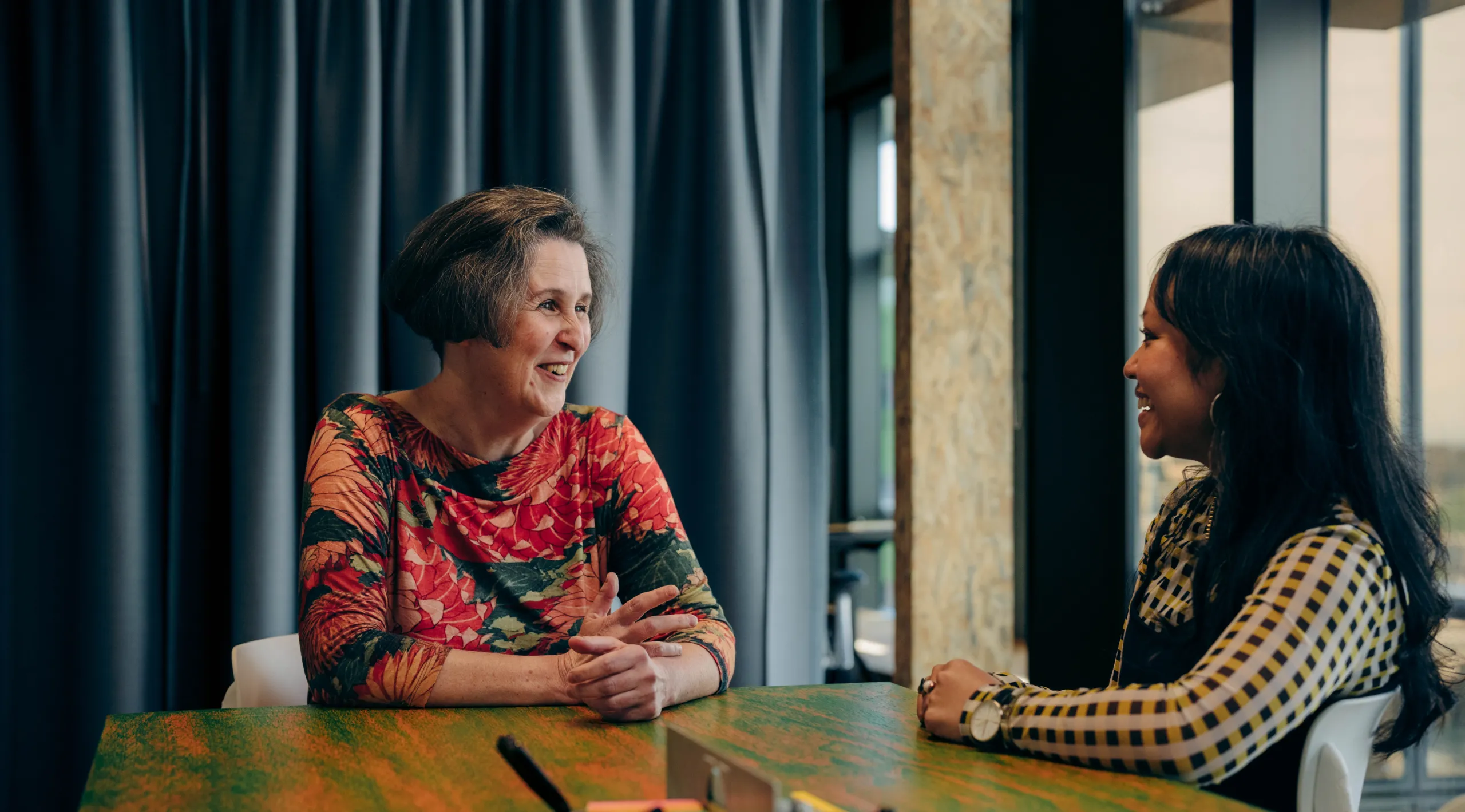
You touched on two important ideas there. The idea that we all know that diversity and inclusion is very important, but when we hear those words, we often think about visible difference. But diversity of thought is so important in making change.
You also touched on the fact that systems are made up of relationships between people. If you can repair those relationships, you can essentially repair parts of the system as well, which I love.
What are you currently thinking about and working on?
We have just seen Donald Trump reelected in the US and we are clearly divided in Australia, with the Voice referendum failing so spectacularly. It feels to me like the women I work with in feminist spaces are at a crossroads. We need to think carefully about how we do the work of feminism, and when we say feminism, what is it that we actually mean by that in this current and future environment?
Feminism has been a number of different things over more than a hundred years. It has meant militant action to some people and it's meant working collaboratively to other people. But the common thread underneath it all is that patriarchy is a system that fundamentally doesn't work for most people. One thing we've learned is that patriarchy doesn't work for anybody on a personal level. There are a very small number of people who are afforded significant power within any patriarchy, but they pay a price for it.
There is value in working out where feminist work intersects with the work of say, people working on climate change, people working on decolonisation and First Nations justice, people working on issues around poverty, and people working on issues relating to the needs of men. What's the middle of that Venn diagram and how do feminists engage with that centre point? That's a piece that I'm very interested in pursuing.
In particular, what does feminist leadership look like when you are trying to engage with other movements and how do you then take that engagement and turn it into practical examples of the benefits that can be brought to all of us by addressing what we would describe as patriarchy, but what an Aboriginal or Torres Strait Islander person might describe as colonial political systems? How do we find something in the midst of all that work that allows us to reassess and change the systems of power which dominate our lives?
One of the most exciting developments recently is that we've seen a challenge to feminism, which has the potential to make us rethink what it is that we are trying to achieve. We've seen lots of tension within feminism itself about the inclusion or role or status of Trans women and non-binary people. My personal take on that is that we know that patriarchy is a power system that's predicated on binaries. And because it's predicated on binaries, the minute we undermine those binaries, men and women, us and them, black and white, the power of patriarchy is reduced and we open a space to view each other as individual people. It’s an opportunity to understand and engage with each other's difference rather than simply asking, which category have you been allocated to?
I think that the amazing work being done by Trans and LGBTI+ activists has the potential to really change who we are as feminists and what it is that we're trying to achieve. I think ultimately that what feminism needs to achieve is the dismantling of our binary thinking systems. The work of non-feminist activists on Trans rights, alternatives to capitalism, climate change and decolonisation has the potential to help feminists to reach that goal.
Feminism has been a number of different things over more than a hundred years. It has meant militant action to some people and it's meant working collaboratively to other people. But the common thread underneath it all is that patriarchy is a system that fundamentally doesn't work for most people. One thing we've learned is that patriarchy doesn't work for anybody on a personal level. There are a very small number of people who are afforded significant power within any patriarchy, but they pay a price for it.
Helen Dalley-Fisher
That's incredible. What do you think the biggest challenges are for us to maximise this opportunity?
I think there are two major barriers to us getting there. The first is the scarcity of resourcing. How do we fight for new types of resourcing and better-targeted resourcing, particularly resourcing that properly remunerates women’s work and resourcing that accepts that the internal, structural work of sector building and community building is important and worth funding.
Another major barrier is that the work that has been done so far, whether we're talking about feminism or decolonisation or Trans rights, is now under attack and needs to be defended. Being able to have the space and the security to step out of the defensive space is one of the major challenges. It is a serious threat to, for example, a Trans activist to put your eyes on the horizon and say, ‘what does a better world look like?’, when levels of violence towards Trans women in particular are so high. How can we make enough space to both respond to the immediate need and also step out of that emergency ‘response’ mindset into a space of collaborative and creative thinking that allows us to work out what our commonalities are?
In that broader space, there are real potential benefits for all of us. We are effectively all working on different aspects of the same project: changing the fundamental values and systems that have dominated our world for generations. They're not fit for purpose in a world that's facing climate change. They're not fit for purpose in a global economy where people are mobile and populations are increasingly diverse.
So how do we build a new set of systems that will meet those challenges? These points of tension within our systems are the perfect opportunity for us to be able to come together to build alternative systems that meet the needs of large numbers of people.
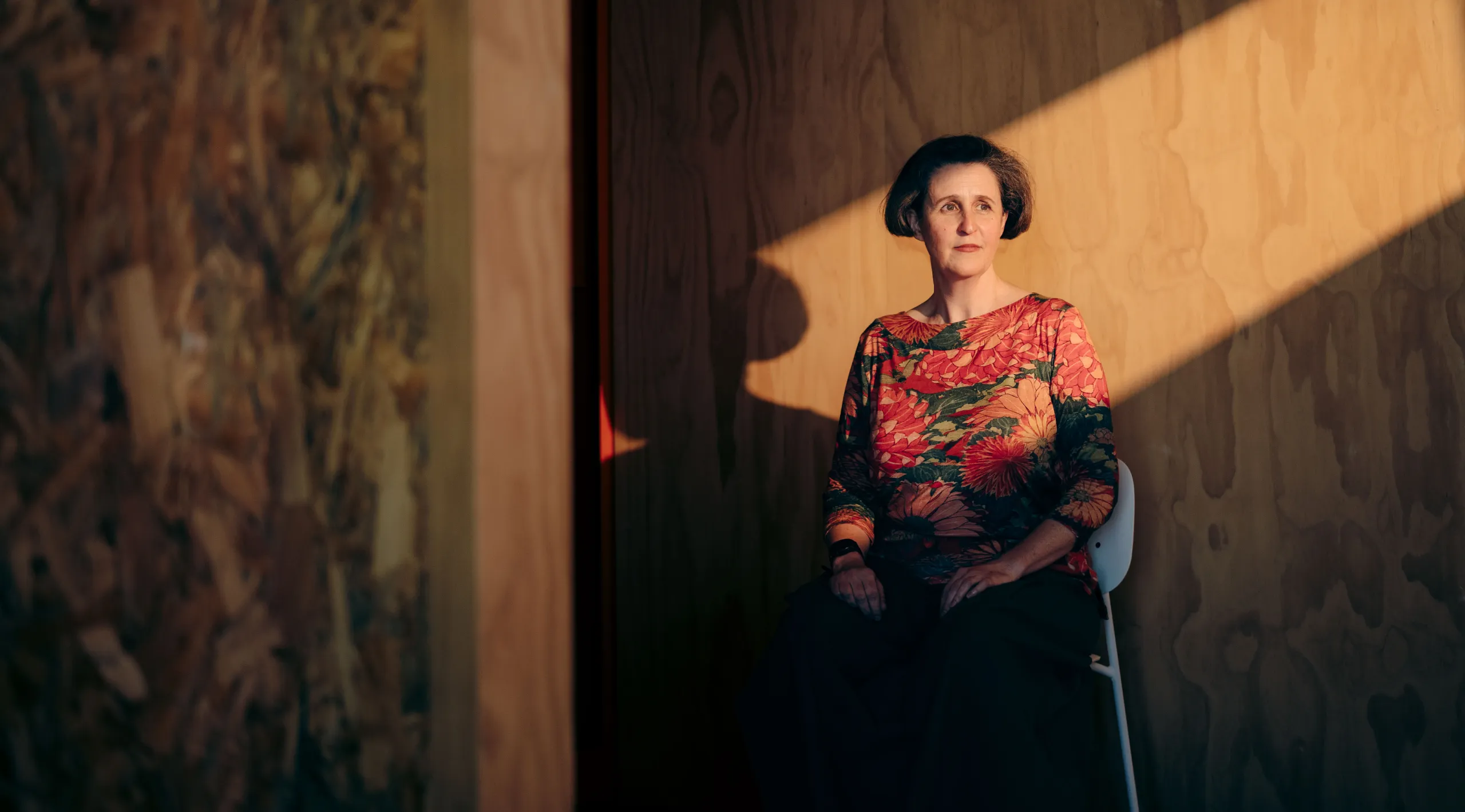
I'd love to look at the flip side and hear from you. What innovations are happening in this space? Where are they coming from and what are some signals of hope?
One of the things that I think is really interesting at the moment is that the call for us to work together is not just coming from feminist activists. It's coming from a whole range of different people.
We've had challenging and rewarding conversations with Aboriginal and Torres Strait Islander women working within their own communities and within the broader political environment about what we could do better as feminists. And those conversations can open the door to improving the way we engage with decolonisation. I would like to see it go faster, but you can't have everything. Sometimes things do take time.
We are also seeing real strides in a range of areas that have come out of work that sits alongside the work for women's safety, but which develops that work in unexpected ways. For instance, the work done by Kate Jenkins and the Australian Human Rights Commission on sexual harassment in the workplace has led to some really innovative and groundbreaking changes to the way we expect workplaces to play a role in changing values about sexual harassment.
There is now a positive duty on employers to ensure that sexual harassment is not occurring in their workplaces. That's a major shift in the way we think about the role of an employer. In terms of systems change, that's actually the beginning of quite a major system evolution.
We're also seeing the same thing happening in our federal parliament with the Set the Standard report , which identified horrific levels of sexual harassment, abuse and even assault occurring in the place where our laws are made. The Set the Standard report has so far resulted in a set of parliamentary behaviour standards and a complaints mechanism, with further work underway. It was interesting to see how the discussion about harassment in parliament affected the discussion about a national corruption commission. It appeared there was a greater recognition of the need for oversight mechanisms because we now know we can’t count on good behaviour in the halls of parliament.
This is a good example of how work relating specifically to women can often have a knock-on effect in terms of changing the context for thinking in other areas.
Finally, I'm contributing to an exciting project about diversity in parliament. We are asking, ‘How is it that we address real diversity in parliament when the employment structures for parliamentarians and senators are so prohibitively demanding and rigid?’ We know that many people's lives don't accommodate that. You have to be a very particular type of person to be able to both represent your community and cope in that environment. That narrows the pool of people who actually get a chance to play that leadership role in our communities.
One solution could be job sharing in parliament. We’re trying to work out what the barriers are to us electing two people to fill the role of MP or Senator. How would they fulfill that role and divide the work between them?
We've seen that work in other contexts. We're seeing the early stages of that working in the business world for a few CEOs and some other executive roles. And we're seeing a growing understanding of what change is needed to make that happen.
If we could get job sharing in parliament, we could be looking at people with disability having an easier way into decision-making and leadership. We could be looking at more sustainable ways of ensuring succession in parliament, potentially teaming up an experienced parliamentarian who intends to retire with a young person who wants to build a career and have a skills transfer process through a job sharing arrangement.
We could be looking at much easier entrance conditions for women and carers getting a voice in parliament because you may be able to team people according to their capacity. It has the potential to change the way we think about representative democracy. What does representation actually mean, and who should be doing the representation? I'm very excited to be working with a team of volunteer feminists about what that world might look like.
Incredible. I can imagine how that would change the types of conversation we have in parliament and government and how that might influence the types of decisions or priorities that we start to see come through that are much more representative of the country. I can't wait to see how that unfolds.
As a studio that creates spaces for diverse inclusion, I'm very aligned with everything you're saying. I'm wondering for all of us reading, what can we do in our day-to-day to help progress things?
I think one of the key challenges for all of us is to push back on narratives and reflexive thinking practices, which lead us to see people who disagree with us as ‘other’. Instead, we need to ask ourselves, where's the opportunity to be challenged by this alternative point of view?
That's going to be a difficult process because we do live in an environment where the structures around us automatically push us into binaries. The idea that 'people like me are good and people not like me are bad' is built into a lot of our systems and a lot of our thinking. So being able to step away from that and instead see ourselves as members of a diverse community again is important.
I'm somebody who grew up in a country town, so I’m familiar with those environments where people need to talk to each other simply to be able to make the world function. In our national discourse, this can sometimes be missing, particularly when we're looking at increasingly urbanised populations and populations that are increasingly online.
Our opportunities for engaging with people who are different from us are diminishing. So one of the challenges is being able to reach out outside our own circles of understanding to hear from other people.
One of the ironies is that the internet and social media play a dual role; they narrow our circles via algorithms which assume we only want to hear what we already think, but they also provide a platform for the views of a very wide range of people.
I think we actually need to be talking about open hearts here, and that's a hard thing to do, particularly if you're somebody who has experienced harm as a result of our current thinking and structures.
But those of us who have the capacity and perhaps are carrying sufficient privilege to be able to do that thinking and create those spaces have a real opportunity and obligation, I think, to put the emphasis on who are we talking to and who's not at the table. Once we have arrived at a conclusion, how can we challenge that conclusion at its most fundamental level in order to both stress test it and determine whether or not it is, in fact, wrong?
The concept of approaching differences with an open heart and with curiosity to learn and understand is something we can all incorporate into every interaction.
Thanks, Helen.
I think we actually need to be talking about open hearts here, and that's a hard thing to do, particularly if you're somebody who has experienced harm as a result of our current thinking and structures.
Helen Dalley-Fisher
